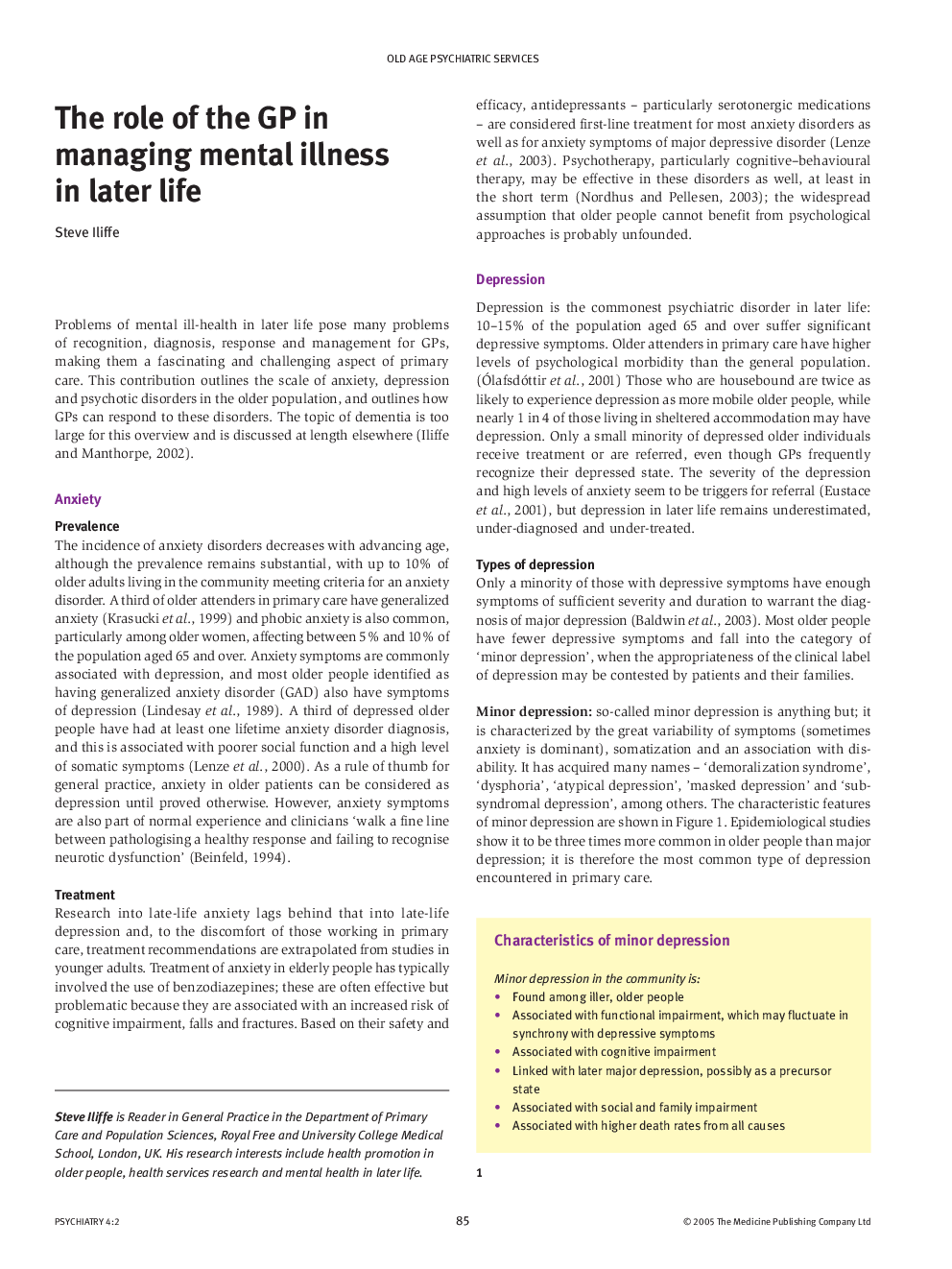| Article ID | Journal | Published Year | Pages | File Type |
|---|---|---|---|---|
| 9381808 | Psychiatry | 2005 | 4 Pages |
Abstract
Problems of mental ill-health in later life pose many problems of recognition, diagnosis, response and management for GPs, making the psychiatric disorders of later life a fascinating and challenging aspect of primary care. Anxiety symptoms are common and may be disabling, but clinicians walk 'a fine line between pathologising a healthy response and failing to recognise neurotic dysfunction'. Depression in later life is underestimated, under-diagnosed and under-treated, perhaps because it has so many presentations and is so strongly associated with disability. It has a poor prognosis, with a chronic relapsing course. Psychotic disorders can be the most difficult to deal with in general practice, and engaging specialist services at an early stage is important. This contribution describes the diagnostic and management options open to primary care physicians, outlines the pitfalls in diagnosis, and reviews the complexities of depression in particular. Rules of thumb for responding to mental health problems in later life are proposed, and some principles for choosing therapeutic interventions discussed.
Related Topics
Health Sciences
Medicine and Dentistry
Psychiatry and Mental Health
Authors
Steve Iliffe,
